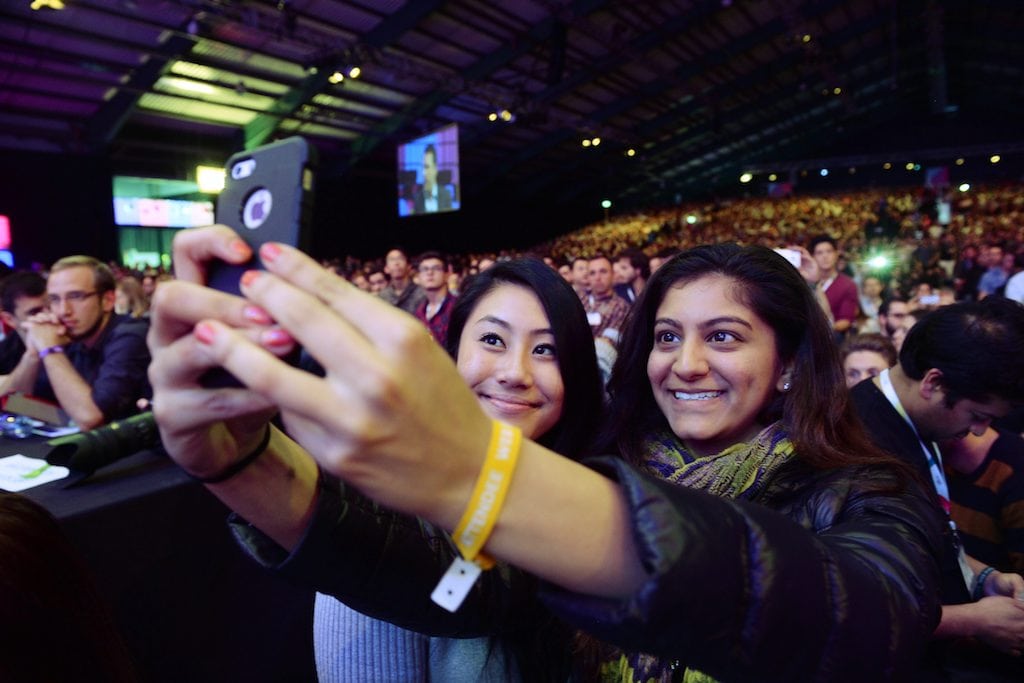Skift Take
Arriving soon: 5G mobile internet. But it will likely be years before it is deployed around the world in any significant ways. Travel companies, along with event professionals, should start planning now for a future defined by ubiquitous access to high-speed data.
Your smartphone is about to get a whole lot faster.
New 5G mobile technology, which is about 1,000 times faster than the current 4G LTE systems used by most phones, will help reinvent how we use smartphones and bring a new level of real-time connectedness to the various devices known as the internet of things. We will still be waiting, though, a long time for this new future to emerge as information infrastructure around the world is updated.
At the Consumer Electronics Show in early 2018, technology giants laid out their vision for bringing 5G to the masses. More powerful connections between devices and phones will lead to advances in artificial intelligence and other areas that have just begun to impact global businesses.
Ericsson, which is beginning to manufacture 5G modems for phones, predicts that only a handful of phones supporting 5G will enter the market in 2019, with 2020 becoming the core year for adoption. By 2025, however, the company forecasts that 1.5 billion 5G subscriptions will be active around the world (the total number of subscriptions to any mobile data plan is 8.9 billion).
Regardless of phones coming equipped with new technology, there are other compatibility concerns that will likely hamper the growth of 5G.
Mobile carriers around the world are embroiled in something of a geopolitical standoff between China and the U.S. Huawei and China have the lead in producing 5G equipment, but there has been a backlash against installing Chinese-made technology in Western communication infrastructures.
“A bifurcated 5G ecosystem will increase the risk that the global technology ecosystem gives way to two separate, politically divided and potentially non-interoperable technology spheres of influence—one led by the U.S. and supported by technology developed in Silicon Valley; another led by China and supported by its cadre of highly capable digital platform companies,” states a report from Eurasia Group, a political consultancy. It seems that a traveler visiting China from the U.S. may not have access to 5G depending on how this develops. These types of disagreement will also make it more expensive to build out infrastructure and successfully bring down various costs for mobile carriers though scale.
For the travel sector, the adoption of 5G will mean a few things. Due to the nature of the technology, access will be limited to big cities when the service finally becomes available. While ubiquitous high-speed mobile connections will make hotel Wi-Fi less important, it will become important for hotel brands to use access to 5G as a differentiator as the technology becomes standardized.
“5G will be mainstream within the next three-to-five years in most major metropolitan areas,” said Vanessa Ogle, CEO of hotel technology provider Enseo. “Hoteliers should be looking to redeploy their network investment into ‘smart’ investments now that can easily be repurposed for things like IoT smart room features that will still be relevant even when 5G is in full swing. Event planners should be creating relationships with hotel property teams (or sales organizations) that have brand standards that will be servicing their attendees with technology enabling properties that create the environment they are looking for at their event or conference.
“For example, if you come to ‘our conference,’ you can preset your temperature for your room prior to arrival, pre-select your refreshment in your room, select your view, watch Netflix on the big TV in the room on your own account, or have a private network for your devices.”
More powerful than just near-instant downloads of Avengers: Infinity War in your hotel room, then, will be the overall ability to tweak elements of the travel experience digitally.
Hotels tend to invest in cycles, whether to refresh rooms, improve meeting space, or rewire their internet. 5G requires fiber internet connections, which are costly to install and maintain. Hoteliers looking to improve their information infrastructure would be well-served to pay attention to the rise of 5G.
“Most hotels are struggling to provide good Wi-Fi solutions for their guests,” said Ogle. “5G will significantly offload the cost and infrastructure requirements for those hotels. I think many hoteliers will be unhappy with the significant investments they are making now into cabling that will become obsolete just as soon as 5G launches. It won’t really be obsolete, but the hotel will have to repurpose those investments for other, on-property technology needs.”
The upside of the technology for meetings and events is clear; increased bandwidth and reduce latency will make virtual reality and augmented reality feasible in the context of an event. It will also reduce the need for Wi-Fi, particularly at large events.
With mobile phones in constant communication with other devices, real-time navigation and personalization will be possible. Furthermore, event organizers and technology providers will be able to invent new ways for attendees to interact digitally.
“5G will make online content streaming and live interactions more streamlined during large interactive speaker sessions,” said Brian Friedman, vice president of digital innovation at event technology company Aventri.
“This new generation of wireless is much faster than 4G and is designed to support 3D content on augmented reality and virtual reality,” he said. “I expect to see the interactive experiences at events come to life now that new immersive technologies will not be limited to connectivity. It will take time for events to adopt and trust 5G network solutions, however, it’s an exciting future that will combine the physical and digital worlds.”
Have a confidential tip for Skift? Get in touch
Tags: meetingsiq, mobile
Photo credit: Attendees at the Web Summit in 2014. Web Summit / Flickr
